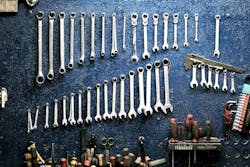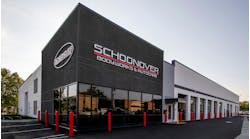March 20, 2018—On March 14, the U.S Senate passed the Economic Growth, Regulatory Relief and Consumer Protection Act, which is a wide-ranging bank deregulation bill that would scale back key parts of the 2010 Dodd-Frank law. While Congress considered banking reform over the past few months, the Automotive Service Association (ASA) worked to ensure that the Federal Insurance Office (FIO), instituted by the Title V of Dodd-Frank, would be protected.
Robert Redding, ASA’s Washington D.C. representative, says right now there is a need for federal regulation because each state handles insurance issues differently.
The FIO, created in 2010 by the Dodd-Frank Wall Street Reform and Consumer Protection Act, was vested with the authority to monitor all aspects of the insurance sector, monitor the extent to which traditionally underserved communities and consumers have access to affordable non-health insurance products, and to represent the United States on prudential aspects of international insurance matters, including at the International Association of Insurance Supervisors.
During the Senate Banking Committee consideration of Dodd-Frank reform, the ASA Collision leadership met with the Committee and various Senate offices to discuss concerns about repealing Dodd-Frank and specifically the House FIO language, Redding says.
Redding says ASA is concerned that compared to the insurance industry, which has representatives across all 50 states, the collision industry does not have the resources available right now to represent and advocate for body shops.
“This is not a new conflict,” he says.
Redding says there are two options going forward. Option one includes the Senate and the House getting together to discuss differences in a Senate-House conference and then neither bill goes forward. Option two involves the House accepting the Senate bill language.
“The first step, once these reform efforts are put to bed, should be FIO including the collision industry on its federal advisory committee,” Redding says.
The FIO also serves as an advisory member to the Financial Stability Oversight Council, assists the Secretary with the Administration of the Terrorism Risk Insurance Program and advises the Secretary on important national and international insurance matters, says Redding.
“After missed report deadlines and a very timid approach to even its’ most conservative role as a federal oversight agency, the FIO has settled in as part of the U.S. Department of Treasury,” he says. “Although, the intent of its original mission, proposed in the legislative process, has not been achieved, clearly having the bones or structure of FIO in place has much value to the collision repair industry.”



